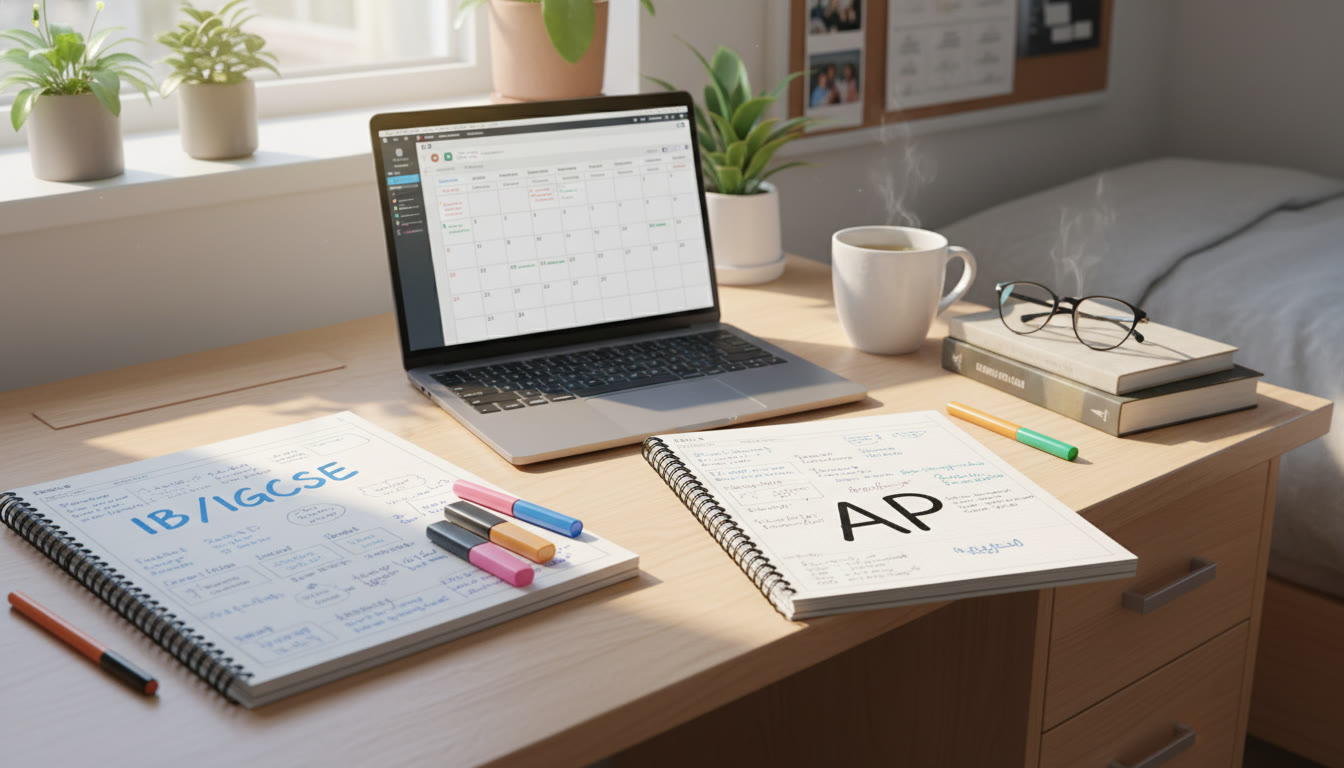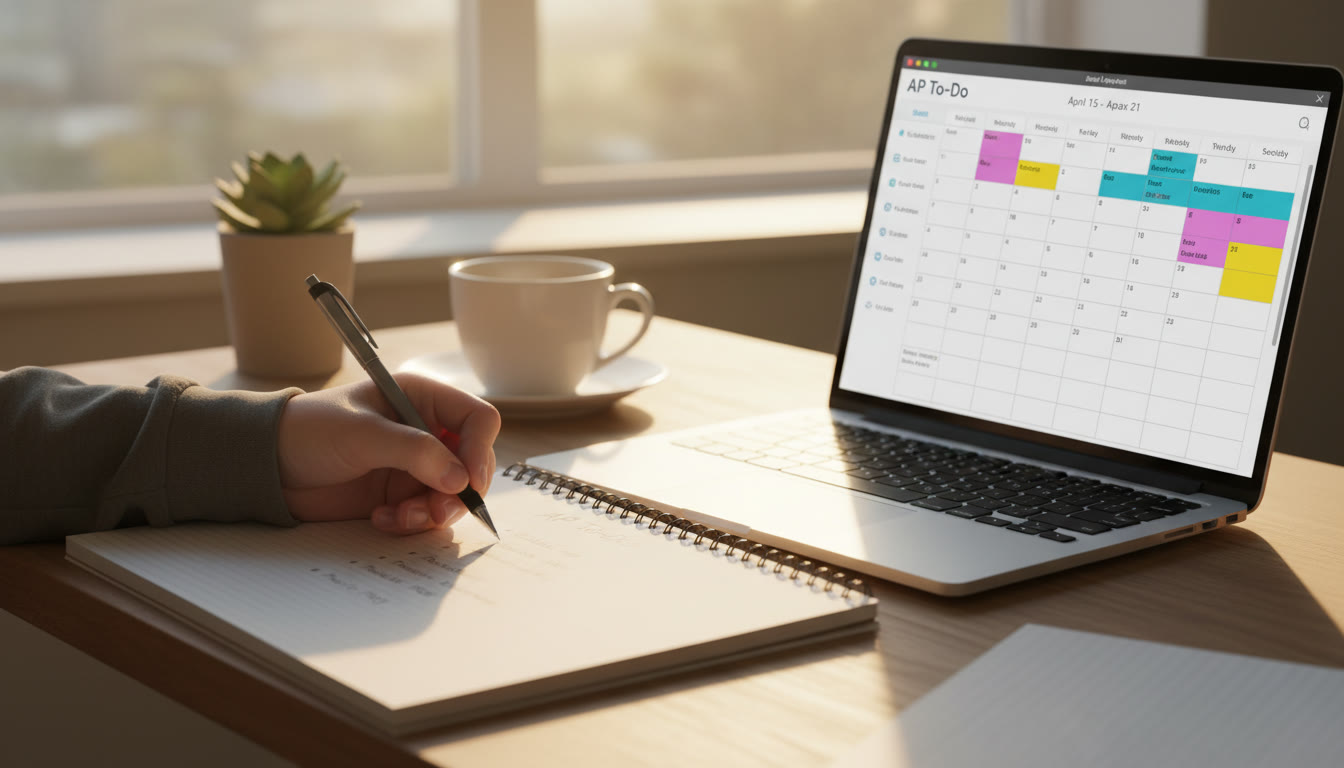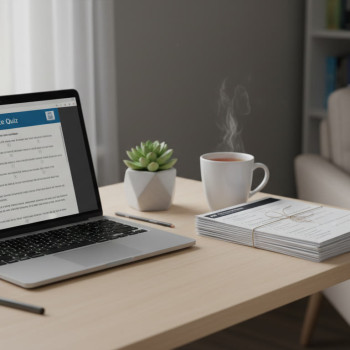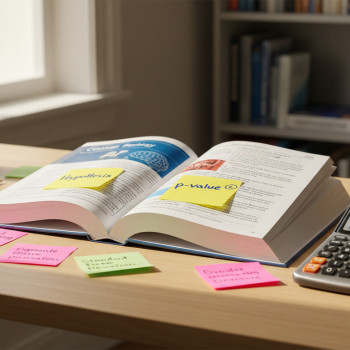Why a Dual-Track Semester Planner Matters
Balancing IB or IGCSE with AP courses can feel like walking a tightrope — exhilarating, high-stakes, and occasionally terrifying. You’re not alone if your calendar looks like a color-coded battlefield of deadlines, tests, and internal assessments. The good news: with a clear, compassionate plan that respects both the depth of IB/IGCSE and the exam-focus of AP, you can thrive academically and still have time to breathe, create, and live.

What Makes Dual-Tracking Different (And How to Turn It Into an Advantage)
At first glance, IB/IGCSE and AP look like apples and oranges: IB/IGCSE emphasize breadth, inquiry-based learning, and sustained internal work; AP focuses on targeted content mastery and standardized exam performance. Rather than letting the differences compete, lean into them. IB/IGCSE cultivates critical thinking and long-form projects — skills that bolster AP essay responses and lab interpretations. AP’s emphasis on discrete topics and practice exams delivers efficient exam strategies and time management that help IB/IGCSE exam sessions.
Key differences in study demands
- Time horizon: IB internal assessments and extended projects often span weeks to months; AP prep benefits from short, intense practice cycles.
- Assessment style: IB/IGCSE may require essays, portfolios, and oral components; AP relies more on multiple-choice and timed free-responses.
- Skill sets: IB/IGCSE reward synthesis and research skills; AP rewards accuracy, recall, and timed application.
How to Build the Semester Planner — Step by Step
This planner gives you stages rather than a rigid script: audit, prioritize, schedule, iterate. Use it as a living document that responds to mock scores, teacher feedback, and your energy levels.
Step 1 — Audit Your Commitments (Week 0)
Spend a focused hour listing everything: AP exams, IB internal assessments, IGCSE coursework, extracurriculars, part-time work, college deadlines, and personal non-negotiables (sleep, family time). This honesty check is the foundation of a realistic schedule.
- List exam dates and major deadlines with absolute dates — put them in your calendar now.
- Estimate weekly study hours per subject — start with conservative numbers and plan to adjust.
- Highlight fixed obligations (labs, rehearsals) so they anchor your weeks.
Step 2 — Prioritize Strategically
Not everything is equally urgent. Use three priority buckets:
- Critical: Upcoming exams and internal assessments within 4–6 weeks.
- Maintenance: Subjects needing steady practice to retain skills (languages, math).
- Growth: Long-term projects like Extended Essay, internal portfolios, or in-depth lab write-ups.
Allocate weekly time accordingly: Critical gets focused blocks, Maintenance gets short daily drills, Growth gets regular, longer sessions (e.g., 90–120 minutes twice weekly).
Step 3 — Build Weekly Blocks
Weekly blocks are the scaffolding that make consistent progress possible.
- Use 60–90 minute deep-work blocks for conceptual learning and extended writing.
- Reserve 25–40 minute review sprints for AP practice questions and flashcard sessions.
- Slot one weekly portfolio/project session for IB/IGCSE that focuses purely on quality, not speed.
Sample Dual-Track Semester Calendar (Visualized)
Below is a sample 16-week semester layout showing how to split effort across a typical week when balancing two to three AP courses with IB/IGCSE responsibilities.
| Week | Primary Focus | Study Blocks per Subject | Assessment Milestone |
|---|---|---|---|
| Weeks 1–2 | Audit, Baseline Mocks | AP: 3/week, IB: 3/week | Baseline practice tests; IA project outline |
| Weeks 3–6 | Content Building | AP: 4/week (inc. timed practice), IB: 4/week (inc. research time) | Drafts for IAs, topic checkpoints |
| Weeks 7–10 | Deep Practice & Feedback | AP: 5/week (mixed practice), IB: 3–4/week (revision) | Submit IA drafts; mid-semester mock exams |
| Weeks 11–14 | Exam Refinement | AP: 6/week (timed sections), IB: 3/week (polish portfolios) | Final internal assessments; practice under exam conditions |
| Weeks 15–16 | Taper & Consolidate | AP: 4/week (review), IB: 2–3/week (final checks) | Final reviews; mental preparation |
How to Use This Table
Think of the table as a template. Your actual distribution depends on specific exam dates and how close you are to submission deadlines. A student with an IA due in Week 8 should shift more weekly ‘Growth’ time earlier; a student with AP exams in May will intensify AP timed practice nearer to exam season.
Weekly Micro-Plan Template (Practical Example)
Here’s a sample micro-plan for one week for a student taking IB Biology, IGCSE English, and AP Calculus AB. This is intentionally concrete so you can copy and tailor it.
- Monday: 90-minute IB lab write-up; 30-minute AP Calc problem set; 25-minute vocab review.
- Tuesday: 60-minute AP Calc timed section; 60-minute IGCSE English close reading; 30-minute IA research.
- Wednesday: 90-minute IB portfolio work; 40-minute AP Calc concept review; short walk for mental reset.
- Thursday: 60-minute IGCSE English practice essay; 45-minute AP Calc mixed practice; 30-minute review of feedback.
- Friday: 90-minute mock test (rotating subject each week); light review in evening.
- Saturday: 2-hour deep session on IA or Extended Essay; 1-hour targeted AP flashcards & problem corrections.
- Sunday: Rest in morning; 60-minute gentle review and planning for next week; social time.
Study Methods That Work for Dual-Track Students
Mix strategies from both systems to create a hybrid approach that is effective and efficient.
Active Recall + Inquiry-Based Learning
Active recall (testing yourself) is excellent for AP fact retention and timed responses. Combine that with inquiry-based learning for IB/IGCSE — ask higher-order questions and draft short project hypotheses that reinforce content rather than replace it.
Spaced Practice + Project Sprints
Use spaced practice for AP topics: short, frequent review sessions with increasing intervals. For IB/IGCSE projects, use project sprints: dedicated blocks where you produce a tangible outcome (a data table, a literature review paragraph, a polished experiment result).
Timed Practice + Reflective Marking
After each timed AP-style practice, spend 10–15 minutes reflecting: where did you lose time, what concepts tripped you up, what can you fix in a specific way? Use this reflection to create a micro-action — a single task you will do before the next practice session.
Using Feedback Loops: Teachers, Mocks, and Tutors
Feedback is the engine of improvement. Schedule regular check-ins and use every mock test, teacher comment, and tutor meeting as data to adjust your plan.
When to Bring in a Tutor
If you’re consistently stuck on a topic for more than two weeks, if mock scores plateau despite practice, or if you need structured accountability for an IA/Extended Essay, a tutor can be the difference between spinning and progressing. Personalized tutoring — with 1-on-1 guidance, tailored study plans, and targeted feedback — speeds up learning and reduces wasted effort. Modern tutoring often includes AI-driven insights that highlight weak areas, suggest practice problems, and track improvement across weeks.
Mental Health and Burnout Prevention
This is not optional. Your planner should protect time for sleep, social connection, exercise, and small joyful rituals. Over-scheduling without recovery undermines IQ and endurance — the very things you need in exam season.
Practical Guardrails
- Sleep: Aim for 7–9 hours most nights. Use a consistent wind-down routine before big tests.
- Micro-breaks: 5–10 minute breaks between study blocks. Move your body and hydrate.
- Weekly reset: One social activity and one day with a lighter study load to recharge.
Real-World Example: How a Student Turned Things Around
Meet Maya (composite example). At the start of the semester, Maya was juggling IB Physics SL, IGCSE Literature coursework, and AP Psychology. Her mock scores were inconsistent and she felt overwhelmed. She applied the dual-track planner: audited commitments, prioritized an AP practice routine for Psychology, and scheduled two project sprints weekly for her Physics IA and Literature coursework. After three weeks of focused blocks and weekly tutor sessions to clarify difficult physics concepts, her mock scores stabilized and her IA drafts began to show clearer analysis. A month later she reported reduced anxiety and more consistent performance — not because she studied more, but because she studied smarter and used feedback to guide what she did next.
Checklist: What to Do Each Month
Use this quick checklist to keep your semester on track.
- Month Start: Check upcoming deadlines and move study blocks to reflect any changes.
- Weekly: Do one timed practice and one project sprint; meet a tutor or teacher for feedback if possible.
- Monthly: Run a full mock exam for each AP subject and one IB practice task; review trends and adjust the next month’s plan.
Tools and Templates to Make It Easy
Your planner should be simple: a calendar app for fixed dates, a weekly template for blocks, and a simple spreadsheet or notebook to track progress. If you use a tutor or tutoring service, ask them for a tailored study plan that integrates mock results and predictive insights. Personalized tutoring that offers 1-on-1 guidance and data-driven suggestions can save hours by focusing your practice on what truly moves the score needle.
Mini Template (Copy-Paste Friendly)
| Item | Frequency | Goal |
|---|---|---|
| Timed AP Practice | 2 per week | Improve pacing and identify weak topics |
| IA/Project Sprint | 1–2 per week | Move project from draft to polished submission |
| Feedback Session | Weekly or biweekly | Get targeted revision advice |
Final Exam Month: Tapering and Smart Review
In the last four weeks before exams, shift from heavy input to strategy and consolidation. For AP, prioritize past paper practice under timed conditions and targeted weak-point drills. For IB/IGCSE, complete any outstanding internal assessments, finalize portfolios, and rehearse oral presentations or practical components.
Seven-Day Pre-Exam Rhythm
- Day 7–4: Rapid review of key concepts, practice problems, and one full timed paper.
- Day 3–2: Light practice, focus on clarity and confidence, review formula sheets and key quotes.
- Day 1: Rest, light review only for areas that calm you; prioritize sleep and healthy food.
- Exam Day: Warm-up with a short (15–20 minute) review of core formulas and structure; arrive early; use planned time-management strategy.
Closing Thoughts: A Planner That Honors Your Whole Life
Balancing IB/IGCSE with AP is not just an academic exercise — it’s a training ground for resilience, creativity, and strategic thinking. The semester planner I’ve outlined is flexible, humane, and built to be iterated. Keep it living: let mock tests, teacher feedback, and how you feel guide adjustments. Bring in experts when you need them — a coach or a personalized tutor for 1-on-1 guidance can accelerate clarity and make your study time far more effective. If you choose to work with a tutoring program, look for tailored study plans, expert tutors who know both IB/IGCSE and AP expectations, and tools that give you measurable insights so every minute you spend studying counts.
Start your planner today: map the next 16 weeks, block your mornings or evenings for deep work, and protect one day a week for rest. You’ll find that with structure, smart choices, and compassionate pacing, dual-tracking becomes not a burden but a powerful advantage.

Quick Resources (What to Keep in Your Toolkit)
- One master calendar with absolute dates (exams, IA deadlines).
- Weekly template with deep-work and sprint blocks.
- Short feedback log to record errors, corrections, and the next micro-action.
- Trusted tutor or mentor for regular review and tailored plans.
One Last Tip
Measure progress by trends, not single scores. A single low mock is informative, not definitive. Track improvement across weeks and adjust your planner in small, focused steps. With persistence and the right plan, you’ll finish the semester not just with good grades, but with confidence and skills that last.
Good Luck — You’ve Got This
If you’d like, I can help you convert this plan into a week-by-week editable schedule tailored to your exact subjects and deadlines — tell me your course list and key dates, and we’ll sketch a personalized roadmap together.
















No Comments
Leave a comment Cancel